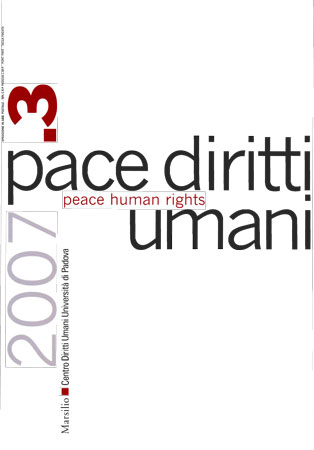Raccolte

Il mercato del lavoro nel post conflict, il ruolo dell’Organizzazione Internazionale del Lavoro
- Contenuto in
- Pace diritti umani - Peace Human Rights, 3/2007
- Tipologia pubblicazione
- Articolo / Saggio
- Pagine
- 107-122
- Lingua
- IT
The Market of Labour Law in the Post Conflict, the Role of the International Labour Organization
Silvia Foffano
The International Labour Organization (ILO) is a specialised agency of the United Nations created in 1919 as a part of the Treaty of Versailles. In the Preamble of the ILO Costitution is written that the universal peace can be established only if it is based upon social justice. Furthermore, the action of this organisation is to promoting opportunities for women and men in order to obtain decent and productive work, improve conditions of freedom, equity, security and human dignity.
The major obstacles for the ILO’s objectives raise from the crises due to natural disasters, armed conflicts, financial and economic downturns and social and political transition. The study of these events is carried out by a specific programme, «Infocus Programme on Crisis and Reconstruction ».
The specific action of ILO in the post conflict is very important, because it allows to assist millions of dispossessed people and vulnerable groups. Such people are affected by worldwide crises and they would not be met if the organisation acted exsclusively on terms of traditional humanitarian assistance.
It is difficult to establish the tipology of armed conflicts, because of the multiplicy and overlapping nature of causal factors. Conflicts are dynamic processes with uncertain outcomes: they may continue over long periods and affect every facet of society (like live and livelihoods, families, and communities) and several kinds of institutions (economic, social, political, legal and educational).
In this context, a solution could be that to focus on job creation: in practical terms it would be a useful tool for survival and a way out of poverty and social exclusion for great numbers of crisis-affected people.

